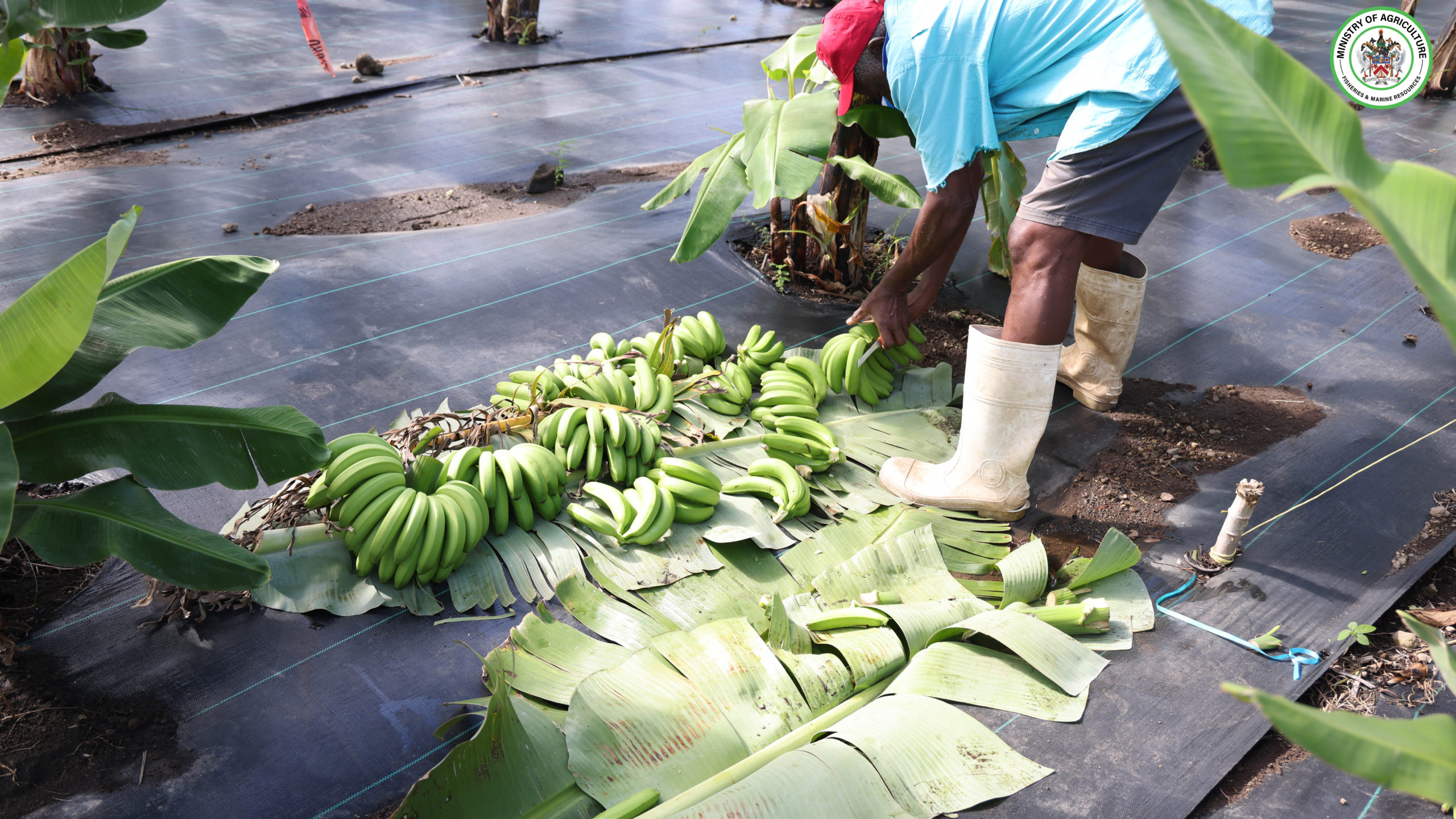Enhanced Banana Industry Capacity through Department of Agriculture-Led Processing and Harvesting Training
The Department of Agriculture in St. Kitts and Nevis reaffirmed its dedication to agricultural advancement and the bolstering of the banana value chain by conducting a comprehensive one-day training session on Banana Processing and Harvesting on April 2, 2025. This initiative underscores the department’s commitment to equipping its technical staff with the necessary skills and knowledge to support local farmers in optimizing their banana production, from field to market. The training, facilitated by seasoned banana production expert Mr. Derrick Charles, provided participants with an immersive learning experience, focusing on practical, hands-on techniques critical for maximizing both the quality and market value of bananas.
The training session delved into the intricacies of the banana harvesting process, emphasizing the implementation of best practices to minimize fruit damage during this crucial stage. Participants gained valuable insights into proper handling techniques during post-harvest processing, along with industry-standard packaging methods designed to maintain freshness and extend shelf life. These practical skills are essential for ensuring that the bananas reach consumers in optimal condition, reducing losses and increasing profitability for farmers. The interactive nature of the training, incorporating both demonstrations and discussions, fostered a dynamic learning environment, allowing participants to actively engage with the material and refine their understanding of these essential processes.
The focus on proper handling techniques during post-harvest processing was a key component of the training. This included detailed instruction on how to minimize bruising and other forms of physical damage that can occur during transportation and storage. Participants were also educated on the importance of maintaining proper temperature and humidity levels throughout the post-harvest process to prevent spoilage and preserve the fruit’s quality. By understanding and implementing these practices, farmers can significantly reduce post-harvest losses, maximizing the return on their investment and contributing to a more sustainable banana industry.
Packaging methods played a crucial role in the training, with participants being introduced to industry-recommended practices to preserve the freshness and extend the shelf life of harvested bananas. This involved learning about the appropriate materials and techniques for packaging bananas, ensuring adequate ventilation while protecting them from damage during transport and storage. Proper packaging not only contributes to maintaining the visual appeal of the fruit but also plays a critical role in preserving its nutritional value and preventing premature ripening. This knowledge empowers farmers to present a high-quality product to the market, enhancing their competitiveness and boosting consumer satisfaction.
Mr. Charles, reflecting on the training and the potential it represents for the local banana industry, noted the significant learning opportunity presented by the session. He emphasized that through the implementation of proper techniques and continuous training, farmers have the capacity to dramatically elevate the quality of their harvests, strengthening the banana industry as a whole. This positive outlook highlights the importance of ongoing training and knowledge dissemination in supporting sustainable agriculture and empowering local farmers. The expert’s observation underlines the potential for growth and improvement within the St. Kitts banana sector, emphasizing the transformative impact of education and training initiatives.
The training session aligns with the Department of Agriculture’s broader strategic objective of enhancing productivity and sustainability within the agricultural sector. By investing in the capacity building of its technical personnel, the department is ensuring that farmers across the island have access to the most up-to-date knowledge, technical support, and improved practices. This comprehensive approach is designed to empower farmers to increase their income, contribute to enhanced local food security, and strengthen the overall resilience of the agricultural sector in St. Kitts and Nevis. The initiative underscores the department’s commitment to fostering a vibrant and thriving agricultural landscape, benefiting both individual farmers and the national economy.
Share this content:












Post Comment